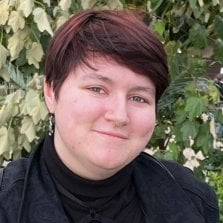The world is facing an unprecedented threat from infectious diseases due to the challenges around a mobile population, antimicrobial resistance, rapid urbanisation and climate change. Study MSc Medical Microbiology with international experts working to understand and tackle these urgent threats.
Over one year (full time) or two years (split study), you’ll spend up to 50% of your course gaining essential practical skills in the laboratory. You’ll develop close working relationships with inspiring lecturers from across LSHTM as well as academia, the NHS, UK Health Security Agency, World Health Organization, and our own Medical Research Council Units in The Gambia and Uganda.
Join us to gain unique insights into current global challenges and prepare for a career where your passion for pathogens and problem-solving can make a significant contribution to the future of planetary health.
What you will learn
- Understand pathogenic microorganisms in depth, through hands-on laboratory experience
- Study microbial pathogenesis and choose to explore specialised areas such as mycology and pathogen genomics
- Build on specialist diagnostic, research, and analytic skills to assess and critique approaches to the prevention of disease
- Develop professional skills of critical thinking and analysis, written and verbal presentations, and intellectual independence
- Learn through a small, culturally diverse peer group
- Choose a research project abroad with our partners across Africa, Asia, and Latin America
The aims and learning outcomes are detailed in the programme specification.
Your MSc can open up a wide range of employment and research options. Previous graduates are working across the world in research, medicine, and pharmaceuticals in roles like research principal investigators, healthcare scientist, lab technician, or running clinical trials. And our dedicated careers team are on hand with consultations, practical advice, and talks from organisations such as CHAI, ICRC, and Local Authority Public Health departments.
Who is it for?
You may have just finished a biology or microbiology degree and are keen to explore the subject in greater depth. Perhaps you’re working in a diagnostic lab and looking to further your career by acquiring specialist skills. You could be a medical student using this degree for intercalated study. Or maybe you’re planning on undertaking a PhD further down the line.
You can join us from an undergraduate degree in any relevant discipline. We also welcome professionals with a biomedical or research background. Fascinated by organisms and pathogenesis? Want to learn first-hand how technological advancement is moving the science of microbiology forward? This course is for you.
Duration
One year full-time or split-study over two years. Ways to study explained.
Intercalating study
Find out about intercalating this course.
Medical Microbiology
Watch Programme Director Richard Stabler talk about the programme.
The below structure outlines the proposed modules for this programme. Programme and module specifications provide full details about the aims and objectives of each module, what you will study and how the module is assessed.
- Structure of the year
- Term 1
Students take two compulsory AB1 modules:
- Bacteriology & Virology
- Analysis & Design of Research Studies
Optional module: Molecular Biology
Sessions on basic computing and statistics are run throughout the term for all students.
- Terms 2 and 3
Students take a total of five study modules, one from each timetable slot (C1, C2, D1, D2, E). The list below shows recommended modules. There are other optional modules which may be taken only after consultation with the Programme Director.
C1 slot
- Clinical Virology
- Molecular Biology & Recombinant DNA Techniques
C2 slot
- Diagnostic Bacteriology
D1 slot
- Advanced Training in Molecular Biology
- Basic Parasitology
D2 slot
- Molecular and Cell Biology of Infectious Diseases
- Mycology
E slot
- Novel Drug Discovery & Antimicrobial Resistance
- Pathogen Genomics
- Project report
During the summer months (July - August), students complete a laboratory-based original research project on an aspect of a relevant organism, for submission by early September. Projects may take place within LSHTM or with collaborating scientists in other colleges or institutes in the UK or overseas. The majority of students who undertake projects abroad receive financial support for flights from LSHTM's trust funds set up for this purpose.
Please note: Should it be the case that you are unable to travel overseas or access laboratories in order to complete your project, you will be able to complete an alternative desk-based project allowing you to obtain your qualification within the original time frame. Alternatively, you will be able to defer your project to the following year.
Prizes
The Bo Drasar Prize is awarded annually for outstanding performance by a Medical Microbiology student. This prize is named after Professor Bohumil Drasar, the founder of the MSc Medical Microbiology.
The Tsiquaye Prize is awarded annually for the best virology-based project report.
Changes to the programme
LSHTM will seek to deliver this programme in accordance with the description set out on this programme page. However, there may be situations in which it is desirable or necessary for LSHTM to make changes in course provision, either before or after registration. For further information, please see our page on changes to courses.
| Fees 2025/26 | ||
|---|---|---|
| Home | Full-time | £14,910 |
| Part-time | £7,455 | |
| EU/Overseas | Full-time | £31,890 |
| Part-time | £15,945 |
*Mobile users, scroll right to view fees
Early application fee reduction for UK MSc students 2025-26
If you are a student from the UK (and have a home fee status), you will be eligible to receive a 5% reduction in your tuition fee if you submit your application by 23:59 on Friday 4 April 2025 and subsequently register onto one of our in-person MSc programmes (some exclusions apply, see detailed terms and conditions).
You must be applying for full-time study on a programme starting in September 2025; be funding your fees yourself; and be a new applicant.
If you meet the above criteria and submit your application by the deadline, you will automatically receive the tuition fee discount.
In order to be admitted to an LSHTM master's degree programme, an applicant must:
- hold either a first degree at Second Class Honours (2:2) standard in a relevant discipline, or a degree in medicine recognised by the UK General Medical Council (GMC) for the purposes of practising medicine in the UK, or another degree of equivalent standard awarded by an overseas institution recognised by UK ENIC or the GMC.
or
- hold a professional qualification appropriate to the programme of study to be followed obtained by written examinations and judged by LSHTM to be equivalent to a Second Class Honours (2:2) degree or above.
or
- have relevant professional experience or training which is judged by LSHTM to be equivalent to a Second Class Honours (2:2) degree or above.
If you have not previously studied in the UK, you can check our guide to international equivalent qualifications for our master's degrees.
Relevant subjects and appropriate qualifications for the MSc Medical Microbiology include microbiology, biology, molecular biology, medicine and nursing. Other life science qualifications will be considered subject to evidence within transcripts of sufficient microbiology exposure (please make this evidence clear within the application). Biomedical scientists and students with research experience (e.g. as research assistants) are also encouraged to apply.
Applicants who do not meet the minimum entry requirement, but who have relevant professional experience may still be eligible for admission. Qualifications and experience will be assessed from the application.
English language requirements
If English is not your first language, you will need to meet these requirements: Band B
It is possible to apply without English language test results however the results of a test may be listed as a condition of an offer of admission. Please see our English language requirements for more information.
Intercalating students
You will need the equivalent of a bachelor's degree to undertake an MSc. This will usually require you to have a BSc degree or have completed the first three years of your medical degree. More information on intercalating an MSc at LSHTM.
Access and widening participation
At LSHTM we are committed to ensuring that excellent students feel encouraged to apply for a course of study with us. We have introduced an innovative contextual admissions system that is designed to support those students who have faced the greatest barriers to their learning. More information on widening participation at LSHTM.
Applications should be made online and will only be considered once you have provided all required information and supporting documentation.
Please also read LSHTM's Admissions policies (pdf) prior to submitting your application.
You can apply for up to two master's programmes. Make sure to list them by order of preference as consideration will be given to your top choice first.
Please ensure you pay careful attention to the content of your personal statement (page limit: 1 page). We do not invite applicants for interviews, so the clarity and relevance of the information you provide in your personal statement are of considerable importance to us. We would like to know your experiences in relevant fields(s), your reasons for applying to our MSc, what you hope to gain from the training we offer, and how you intend to use the knowledge and skills you acquired to further your career and contribute to improving sexual and reproductive health.
Application fee
A standard non-refundable application fee of £50 applies to all taught Master’s degree programmes and is payable upon application submission. Income generated from the application fee is shared between scholarships and the student hardship funds.
Application deadline
The final closing dates for all taught Master’s applications for entry in the 2025/26 academic year is:
- Sunday 27 July 2025 at 23:59 UK time for all students requiring a Student visa
- Sunday 31 August 2025 at 23:59 UK time for all UK, Irish and non-Student visa students
Tuition fee deposit
Applicants are required to respond to their Offer of Admission and pay the £500 deposit within 28 days of receipt, or their place will be released and the offer automatically declined. The deposit is deductible from tuition fees upon full registration with LSHTM. Applicants in receipt of a full scholarship will not be required to pay the deposit.
Do you need a visa?
Please visit our Visa & Immigration pages for advice and guidance.
Graduates from this programme move into global health careers related to medical microbiology in operational control programmes, applied basic research, academic fields, in medical establishments and in the pharmaceutical industry.
Below you will find just a few of the positions and organisations that our graduates from this course have entered:
- Example job titles:
- Example organisations:
-
Bupa
EKF Molecular Diagnostics
Harvard School of Public Health
London School of Hygiene and Tropical Medicine
National Health Service
National Public Health Laboratories
Natural History Museum
Public Health England
Purbright
Reynolds MacKenzie
NHS
Tesco
Hear Francesca's thoughts on the MSc Medical Microbiology
Francesca shares her experience of studying the MSc Medical Microbiology at LSHTM, talks about the skills she has learned and discusses the course content.



